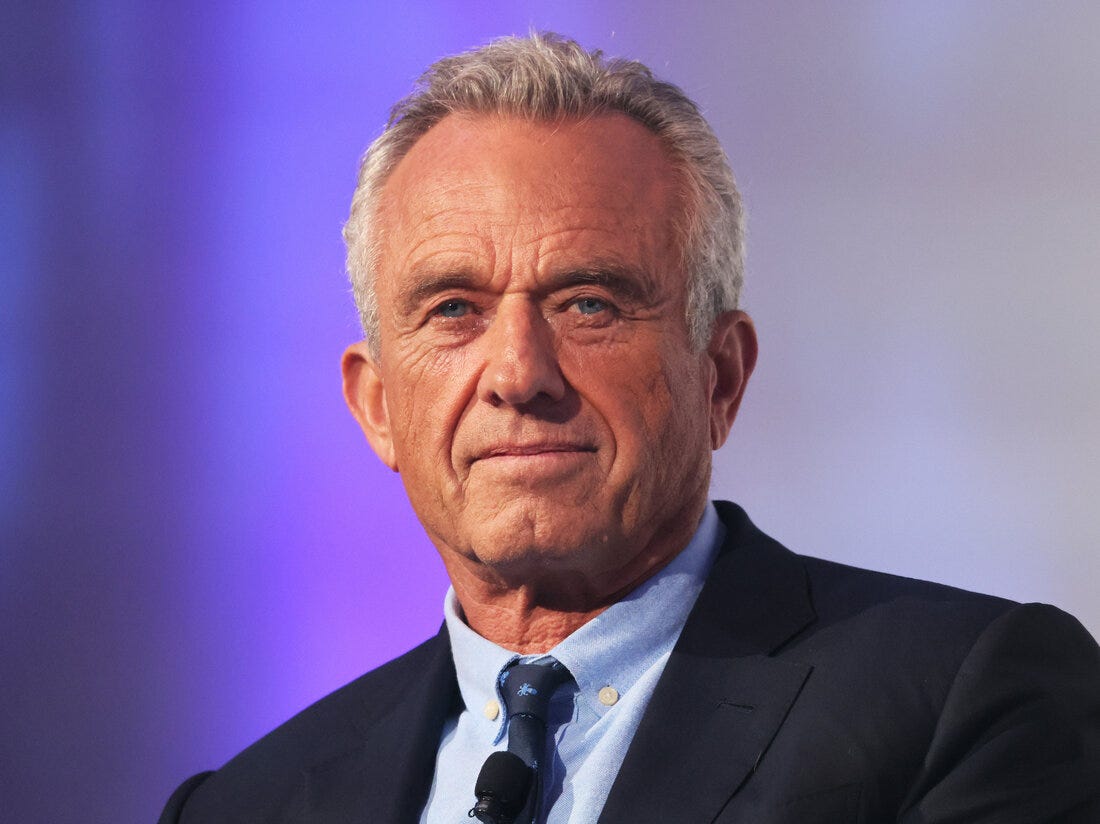Reply to MedPage Today: Is Robert F. Kennedy Jr. Really a "Threat" to Healthcare?
Owais Durrani, DO has fears. Meanwhile, we expect that the pharma/medical corporatocracy should take a beating, and the rot of corruption will be pulled out by the roots - and our health will improve.
Re: “RFK Jr. Threatens the Very Fabric of Healthcare — A vote to give Kennedy power is a vote against public health” - Medpage Today.
In a recent piece published by MedPage Today, Dr. Owais Durrani warns that Robert F. Kennedy Jr. could be a “threat to the very fabric of healthcare.” The article frames Kennedy’s critiques of public health institutions as misinformation poised to destabilize the nation’s healthcare infrastructure. This assessment, while impassioned, glosses over complex issues that are far from settled in public health. Kennedy’s perspectives, although controversial, should not be dismissed out of hand. Instead, they reveal underlying questions about healthcare’s direction, transparency, and the role of public trust—issues that demand thoughtful debate.
Kennedy’s detractors often cite his understanding of the risks of vaccines, antidepressants, fluoride, and Wi-Fi radiation as dangerous. Yet, by branding his positions as “anti-science” without examining their roots, critics risk oversimplifying genuine public health concerns - making it difficult to take them seriously. Kennedy’s advocacy, particularly around vaccine safety, should not be mischaracterized as an attack on vaccination itself. Rather, it questions the systems responsible for vaccine oversight and emphasizes the need for open scientific inquiry. For many Americans, the pandemic amplified concerns about rushed approvals, limited transparency, and the societal pressure to align with government directives without room for individual choice. Addressing these issues transparently, rather than dismissing them, would strengthen rather than erode public trust in healthcare.
The article criticizes Kennedy’s plans to overhaul health agencies such as the CDC, FDA, and NIH, implying that questioning these agencies endangers public health. However, history reveals that these institutions are not infallible. Year after year, decade after decade, an increasingly sick public has witnessed massive failures by these agencies, often with disastrous consequences. We spend so much on healthcare one would think that chronic illness has reduced over time. Not so. One would expect that life expectancy would increase. No so.
Kennedy’s criticisms speak to a broader call for accountability. Reforming these agencies—or at least examining their internal processes and funding sources—could harness them to reduce chronic illness and Make America Health Again.
Furthermore, Kennedy’s questioning of certain medications and environmental factors, such as antidepressants and Wi-Fi radiation, is often dismissed as fringe or conspiratorial. Yet, overuse of antidepressants and the lack of comprehensive research into electromagnetic fields are valid concerns in their own right. The potential overprescription of antidepressants and its ties to increasing dependency, particularly among younger Americans, deserves open discourse, especially given the dramatic rise in mental health issues. Wi-Fi radiation and potential long-term exposure effects are still under investigation, although not conclusively proven to be harmful. Dismissing these inquiries as “misinformation” sidesteps critical scientific exploration that could yield valuable insights over time.
The piece also suggests that allowing Kennedy access to vaccine safety data would be tantamount to a public health disaster. This assertion assumes a uniform consensus within the scientific community, when in fact, rigorous debate is intrinsic to scientific progress. It’s worth remembering that healthcare trust is not merely about preserving existing narratives but about ensuring those narratives are rooted in robust, transparent, reproducible - and unbiased - research. Public health has failed. Period. Its continuance depends on people’s confidence that institutions prioritize their well-being over corporate or political interests. Kennedy’s proposals for greater transparency and agency reform could, if carefully implemented, rebuild that trust rather than weaken it.
Dr. Durrani’s article further highlights the risk of healthcare violence due to “misinformation” and declining trust. This point, while significant, oversimplifies the drivers of distrust in healthcare. Misinformation alone does not account for people’s skepticism; many are wary of perceived conflicts of interest, lack of clear communication, and the speed with which mandates have been enforced without nuanced consideration for individual needs. In many cases, this distrust stems from personal experiences with direct knowledge of disinformation in the form of propaganda rather than information. These experiences enrage the public as they grapple with worsening health, increased healthcare costs, insurance complexities, and inconsistent medical advice. Kennedy’s push for transparency in health data and policies, far from being a “threat,” could be instrumental in addressing these frustrations.
As we approach pivotal elections, the future of healthcare policy indeed hangs in the balance. Still, labeling Kennedy a “threat” overlooks an important fact: his advocacy resonates with many who feel that healthcare, in its current form, fails to meet their needs. Kennedy’s proposed reforms challenge a system increasingly viewed as inaccessible, profit-driven, and resistant to scrutiny. His critics may dismiss him as a disruptor, but perhaps disruption is precisely what healthcare needs.
The title of the article should have read, “RFK Jr. is a Threat to Healthcare… As We Know It”—and that’s not a bad thing.





The current fabric$$$ of health care needs to be ripped out by the roots, pruned and replanted in a soil that’s not self-$erving and greedy AT THE TOP.
Shiva4President.com
Mr. Kennedy could be a real threat to their source of profit .